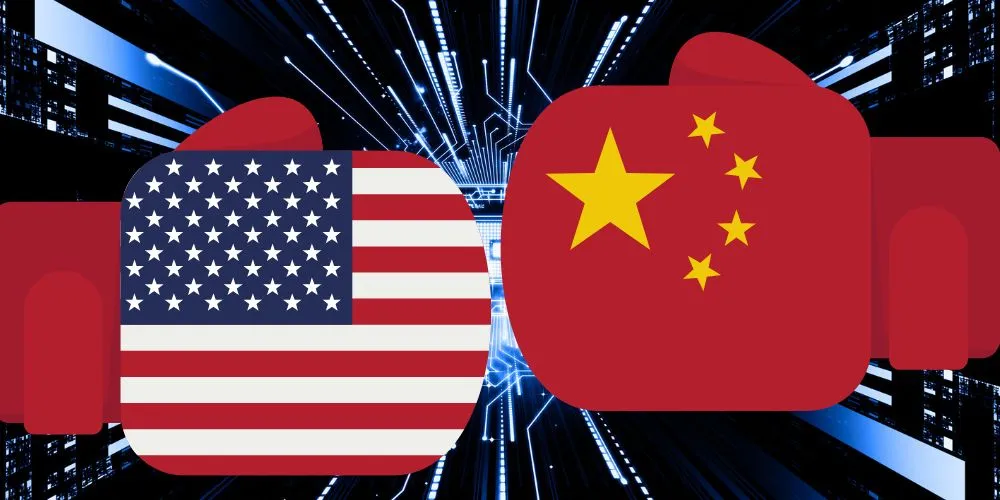Key Points
- Whether Trump or Harris wins, the U.S. is expected to intensify efforts to curb China’s technological advancements.
- Harris would likely adopt a more targeted and coordinated approach, while Trump would impose broader measures, such as tariffs and export restrictions.
- Both candidates will likely introduce rules to slow Chinese imports of chips, AI products, and connected devices into the U.S.
- Harris is expected to work closely with allies to enforce tech export controls, whereas Trump would take a more unilateral stance.
The U.S.-China tech conflict is set to intensify regardless of the outcome of the November 5 U.S. presidential election, whether it’s Republican Donald Trump or Vice President Kamala Harris who takes office. Both candidates have signaled that they would pursue aggressive strategies to curb China’s technological advancements, particularly in areas like artificial intelligence (AI), chips, and smart devices, though with different approaches.
Former officials from both the Biden and Trump administrations and industry experts anticipate a new wave of policies to restrict the flow of U.S. technology and investments to China. The goal is to prevent U.S. tech from bolstering China’s military and AI capabilities. Harris is likely to take a more calculated, multilateral approach, while Trump would likely implement broader, more unilateral measures.
In her campaign, Harris has emphasized that the U.S. must “win the competition for the 21st century” against China, advocating for a strategic and cooperative effort with allies to enforce export controls. This would continue the Biden administration’s current policies to slow China’s access to key technologies. For instance, a law passed earlier this year mandates the sale of TikTok by its Chinese parent company, ByteDance, or face a ban.
On the other hand, Trump is expected to take a more forceful stance, characterized by his readiness to impose sweeping tariffs and expand the U.S. entity list, which restricts exports to certain Chinese companies. According to Nazak Nikakhtar, a former Commerce Department official under Trump, a potential Trump administration would likely deny more licenses to export U.S. technology to China and might impose restrictions on products that contain Chinese chips. Trump’s trade advisors are also expected to push for harsher measures against allies that don’t align with U.S. policies toward China.
Peter Harrell, a former national security official in the Biden administration, believes that the U.S.-China tech “cold war” will open new fronts focusing on data, software, and connected devices under either administration.
While Harris would likely pursue a more targeted and strategic approach, collaborating with allies, Trump would use tariffs as a blunt instrument to achieve rapid results. As a former Commerce official, Bill Reinsch compared the two strategies, describing Harris’s approach as a “scalpel” and Trump’s as a “sledgehammer.”





